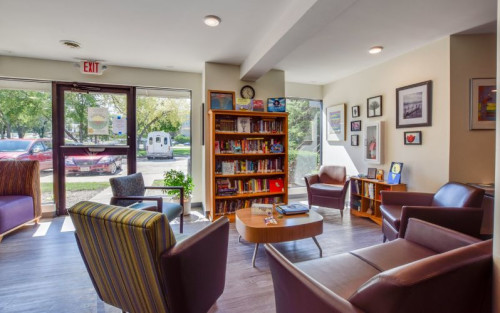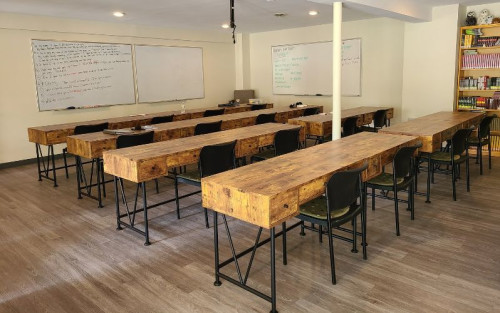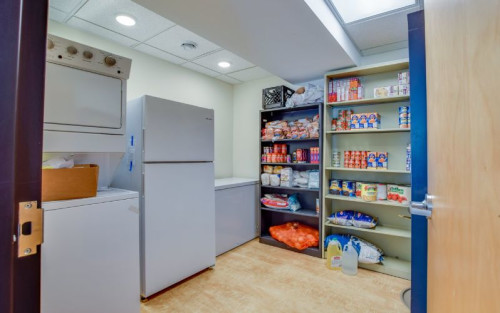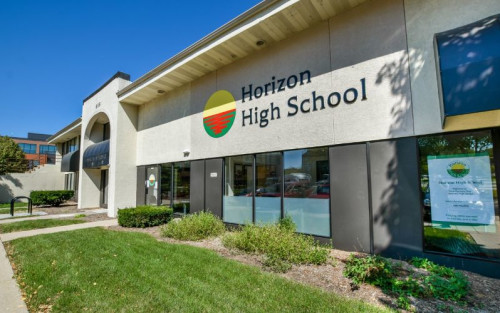






Horizon High School
Treatment Focus
This center treats substance use disorders and co-occurring mental health conditions. Your treatment plan addresses each condition at once with personalized, compassionate care for comprehensive healing.
Primary Level of Care
Integrates academic instruction with therapeutic support, helping students manage emotional or behavioral challenges while continuing their education in a structured, supportive environment.
Claimed
Recovery.com has connected directly with this treatment provider to validate the information in their profile.
Treatment Focus
This center treats substance use disorders and co-occurring mental health conditions. Your treatment plan addresses each condition at once with personalized, compassionate care for comprehensive healing.
Primary Level of Care
Integrates academic instruction with therapeutic support, helping students manage emotional or behavioral challenges while continuing their education in a structured, supportive environment.
Provider's Policy
Payment Plans & Scholarships available. Ask Horizon High School staff for more information and applications.
Horizon High School
Horizon High School
About Horizon High School
Located west of the Isthmus, Horizon High School teaches and provides support to students age 14-18 with a 5:1 student-to-faculty ratio. Horizon is the only recovery school in WI, providing group therapy and individual counseling for students who have a drug addiction or are at risk of addiction, alongside regular academics. Horizon usually takes 10-15 students at a time but can take up to 21, and they allow students to enroll midyear. Guest speakers and staff share their experiences in recovery to encourage the students. The curriculum centers on science, math, English, and social studies with applications like healthcare in the United States and understanding the culture that a book reflects. They facilitate physical education through off-campus gym workouts. Their life skills-focused field trips explore the Henry Vilas Zoo, pet stores, parks, farms, libraries, ice skating, amusement parks, and more. Horizon rounds out the curriculum with volunteer outings to connect with the Madison-area community.
Horizon High School offers voluntary admission to students. They verify that the students are enrolling willingly and have them sign a pledge to remain alcohol and drug-free during their enrollment at Horizon. They require students to be sober for 30 days before enrolling. Staff perform weekly random drug tests to ensure continued sobriety.
Students meet regularly for group therapy and have an onsite counselor to discuss concerns individually. Also, Horizon High School requires students to have a support person outside the school, such as a counselor, psychiatrist, social worker, or sponsor.
Parental Support
Each month, Horizon High School hosts a nightly support meeting for parents, guardians, and other family members to meet other families addressing the effects of addiction and mental health disorders.

Center Overview
Treatment Focus
This center treats substance use disorders and co-occurring mental health conditions. Your treatment plan addresses each condition at once with personalized, compassionate care for comprehensive healing.
CARF Accredited
CARF stands for the Commission on Accreditation of Rehabilitation Facilities. It's an independent, non-profit organization that provides accreditation services for a variety of healthcare services. To be accredited means that the program meets their standards for quality, effectiveness, and person-centered care.
Insurance Accepted
Pricing and Program Length
Estimated Center Costs
The cost listed here ($250 (MMSD residents) or $6000 (non-MMSD students)/semester + $100 application), is an estimate of program cost. Center price can vary based on program and length of stay. Contact the center for more information. Recovery.com strives for price transparency so you can make an informed decision.
Levels of Care







Your Care Options
Specializations
Adolescents
Teens receive the treatment they need for mental health disorders and addiction, with the added support of educational and vocational services.
Drug Addiction
Drug addiction is the excessive and repetitive use of substances, despite harmful consequences to a person's life, health, and relationships.
Opioids
Opioids produce pain-relief and euphoria, which can lead to addiction. This class of drugs includes prescribed medication and the illegal drug heroin.
Who We Treat
Adolescents
Teens receive the treatment they need for mental health disorders and addiction, with the added support of educational and vocational services.
Approaches
Evidence-Based
A combination of scientifically rooted therapies and treatments make up evidence-based care, defined by their measured and proven results.
Family Involvement
Providers involve family in the treatment of their loved one through family therapy, visits, or both–because addiction is a family disease.
Individual Treatment
Individual care meets the needs of each patient, using personalized treatment to provide them the most relevant care and greatest chance of success.
Therapies
1-on-1 Counseling
Patient and therapist meet 1-on-1 to work through difficult emotions and behavioral challenges in a personal, private setting.
Meditation & Mindfulness
A practiced state of mind that brings patients to the present. It allows them to become fully aware of themselves, their feelings, and the present moment.
Animal Therapy
Animals can inspire trust and self-worth. In this experiential therapy, guided interactions are used to improve social skills and emotion regulation.
Art Therapy
Visual art invites patients to examine the emotions within their work, focusing on the process of creativity and its gentle therapeutic power.
Life Skills
Teaching life skills like cooking, cleaning, clear communication, and even basic math provides a strong foundation for continued recovery.
Substances We Treat
Alcohol
Using alcohol as a coping mechanism, or drinking excessively throughout the week, signals an alcohol use disorder.
Co-Occurring Disorders
A person with multiple mental health diagnoses, such as addiction and depression, has co-occurring disorders also called dual diagnosis.
Drug Addiction
Drug addiction is the excessive and repetitive use of substances, despite harmful consequences to a person's life, health, and relationships.
Opioids
Opioids produce pain-relief and euphoria, which can lead to addiction. This class of drugs includes prescribed medication and the illegal drug heroin.
Languages
Aftercare
Care Designed for Your Needs
Personal Amenities
Amenities
Special Considerations
Activities
Off-Site Activities
Yoga
Yoga is both a physical and spiritual practice. It includes a flow of movement, breathing techniques, and meditation.





